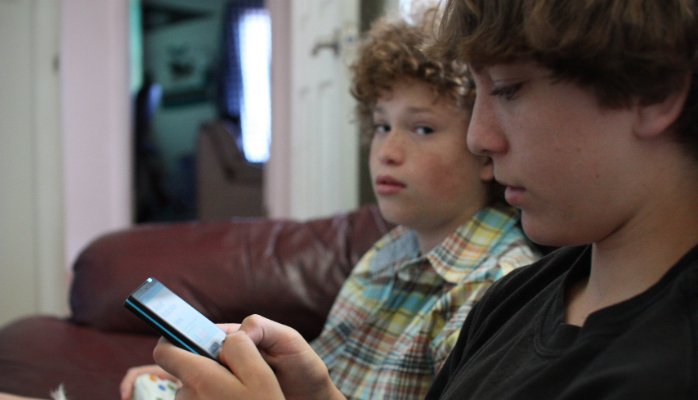Parenting in the modern world means worrying about how much time your child spends in front of a screen. Pediatricians may recommend only two hours of screen time a day, but kids actually spend as much as
seven hours a day looking at TVs, computer monitors, video games, tablets, and cell phones. Study after study has linked those sedentary hours to the skyrocketing rate of childhood obesity in the U.S.
I realize that it’s not realistic in today’s high tech world to restrict screen time to two hours, especially for teenagers. So here’s an alternative: How about harnessing some of that technology to make our children healthier? The need couldn’t be more dire. One in three children in America is overweight or obese, and obesity remains one of the biggest threats to the health of our children, both now and as they grow into adults. That’s why the
Robert Wood Johnson Foundation announced that it will
pledge $500 million over the next 10 years to expand efforts to ensure that all children in the U.S. -- no matter who they are or where they live -- can grow up at a healthy weight.
Building on a $500 million commitment made in 2007, this brings our funding of this issue to $1 billion. To get the biggest impact for those dollars, we need to come up with fresh ideas, creative approaches, and new tools that will help us build a
culture of health for our children, and their children. What better tool than the digital devices our children have already mastered?
And adults can lead by example, because many of us have already embraced digital health tools. There are currently 17,000 mobile apps designed to improve our health; according to
industry estimates, half of the world’s 500 million smartphone owners will have a health app on their device this year. Plus, some
70 million wearable fitness trackers were sold in 2014, and people are expected to buy another 160 million by 2016.
Of course, having health apps and using them is not always the same thing. And getting kids to use digital technology and social media for health is yet another challenge. But it’s not that big of a leap from Snapchatting with friends, or searching YouTube and Vine, to sharing stats and photos about how many days you walked to school, vegetables you ate or miles you rode on your bike. Almost 95% of 12- to 17-year-olds in the U.S. have Internet access at home or school. Why not meet them in their online world?
We already know it can work.
Zamzee, a children’s online activity meter and motivational website designed by
HopeLab, with feedback from actual kids (and funding from RWJF) is meant to get kids moving more. Research shows that Zamzee increased physical activity in kids by 59% on average over a
six-month study period.
There is a growing number of such digital health tools designed with kids in mind. The
Weigh2Rock.com website, founded by a pediatrician, allows overweight teens, pre-teens and their parents to form support groups, share tips and track their personal fitness goals online. It also allows healthcare providers to follow the progress and interact with their patients online. Leapfrog’s
Leapband, introduced in August, is a personal fitness tracker for children. Worn like a watch, it uses games to get kids moving and allows them to rack up points as they progress though the challenges.
FoodnMe.com, a site that promotes healthy eating, has a fun
SmashYourFood mobile app that lets kids smash or explode a variety of foods (virtually, of course) while learning about their fat, sugar, and salt content. Actually, this one is fun for adults, too
I’d like to see a lot more of these digital health tools for children. My hope is that developers, parents, health professionals and coaches will start thinking more like kids. Or, better yet, ask some kids what technologies and apps would most entice them to embrace healthier choices. I’ll bet they’d come up with some pretty creative ideas. Let's start now. If you have some ideas about how to harness personal data, digital technologies and social media in ways that can help kids, and their families, get and stay healthy, please share in the comments. Because even $1 billion won't solve this problem without lots of help.


